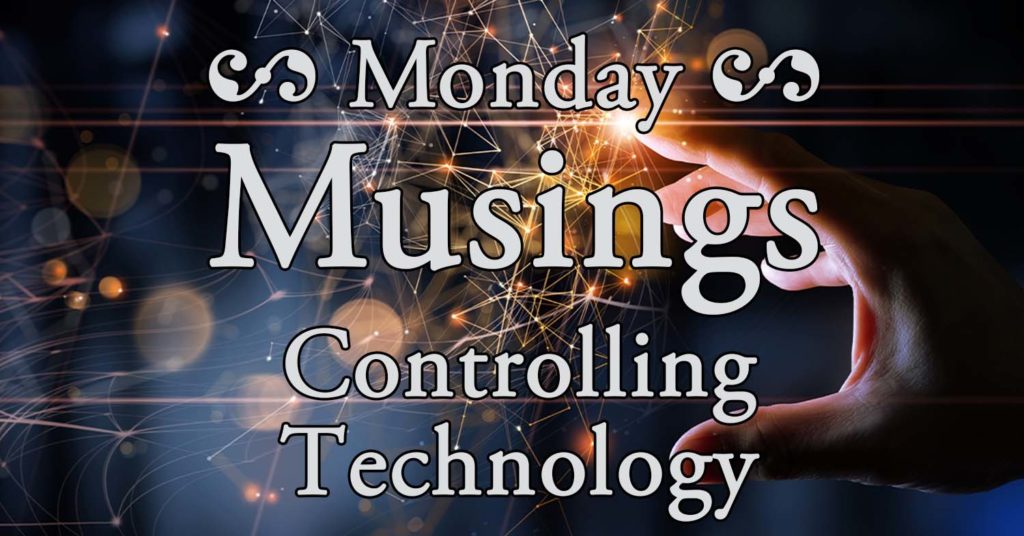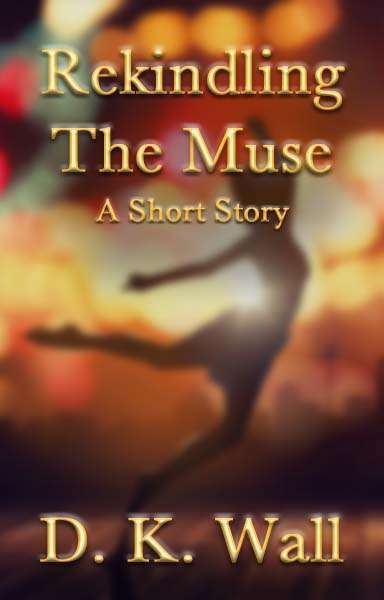Share This Musing
Musing: Controlling Technology
You’re busy, right? No time to read this article. Don’t worry—just scan it. No harm in that, right?
Or is there? In our hurried lifestyles, we are scanning more and more every day. Research shows we need to scan less and read more.
An article entitled “Serious reading takes a hit from online scanning and skimming, researchers say” from The Washington Post popped up in my reading this past week (I hope that’s not behind a paywall so you can read it too). The gist is that our ever shorter messaging and the impact of social media have shortened our attention spans to where our brains struggle with long-form reading. Since the article is over eight years old, I can only imagine the problem is worse.
Newspapers and TV
Newspapers have long known this problem. Articles used to be longer and more likely to continue on another page. USA Today expanded its presence by producing a very predictable paper every day (four color-coded sections – always the same) with brief articles designed to be read over a motel breakfast for frequent travelers. They have parlayed that into owning over a hundred daily newspapers and a thousand weekly papers in almost every state in the union. Much of the paper is produced nationally with a sprinkling of local articles.
My first job, by the way, was a newspaper carrier (known then as a paperboy) for my local newspaper. Seven days a week, I delivered a paper to about 150 households, probably half of the residences in my territory. No matter what the weather, you could find me on my bicycle.
I’m not even sure if that job exists anymore, at least not for a 12-13-year-old. The paper, like so many others, is owned by Gannett today—the USA Today people. And readership has plummeted for it and every other newspaper in the country. According to Pew Research, less than half the number of Americans read a newspaper today—digital or print—than they did when I was a kid.
In case you want to blame TV, the changes have hit there too. Network TV used to cover a handful of stories in a half-hour, providing a fairly in-depth analysis on key events of the day. CNN Headline News changed that with quick stories, as per their name.
The challenge has become finding any sources that provide in-depth analysis from multiple angles to fully understand the issue.
But this essay isn’t about blaming newspapers and TV. I don’t think they had much choice. The world changed, particularly with the advent of the internet, and they’ve done everything they could to remain relevant. And to be relevant, they need to be entertaining enough to catch our attention.
Early Computers
To give context to how much change has happened, I want to go back to when I graduated college in the 1980s. I went to work for one of the big international accounting firms, about as cutting edge as existed then. We didn’t have email, cell phones, or laptop computers. We traveled to client’s offices and, using paper and pencils, assembled huge binders to support our work. When the client provided us with a computer generated report (printed on a dot matrix printer from their mainframe computer system), we attached copies of those reports in our files. We did it so much, the running joke was that CPA stood for Cut, Paste, and Apply.
During my tenure, they issued the first portable computers to staff. Not enough for every person, of course, but we could check one out to take to a job and share. We were okay with that because they were huge.
The term “portable” was technically correct, but a stretch. The size of a suitcase complete with a handle for carrying, the monster weighed twenty-eight pounds. A full-sized keyboard flipped down from one end to reveal a nine-inch, mono-color monitor—smaller than a modern iPad—and two 5 1/4 inch floppy disk drives. One ran the program, and the other stored data. (Curious about what it looked like? Check out this link for details.)
A funny side note. When we used that computer to generate a report, we printed it out (on a dot matrix printer we also carried with us to the job), and pasted it into the work papers.
Anyway, I take you back to those days when the dinosaurs roamed the earth to explain how few interruptions happened. We didn’t have cellphones or email, so we called the office to retrieve messages. A receptionist would record them on little pink slips of paper and read them to us over the phone. We would then return the calls and return to work.
Adding Email
My next employer was a manufacturing company with several facilities spread about. A major customer wanted us to connect into their automated inventory system with manufacturing updates—once a day. While installing that technology, we also added email so our scheduling department could communicate with that client. What if, we wondered, we added the ability to electronically communicate between key people at the various plants and headquarters. Thus, I received my first email address.
As we debated the expenditure, one of our executives argued that email wasn’t needed. Why did we need to communicate so fast and so often?
I scoffed at him then as a Luddite, but now I get it.
Through all these times of technological infancy, every office had multiple newspapers. Local papers. New York Times. Wall Street Journal. Several news magazines.
Blizzard of Technology
Toward the end of my career, I couldn’t escape technology. I received hundreds of emails a day. I no longer received little slips of paper noting phone calls I needed to return, but had the horror of voicemails—long rambling messages, often asking if I had read an email the caller had sent. And, of course, on my hip sat the ever-present cell phone. It rang non-stop and beeped with incoming texts.
Worse, I couldn’t escape any of it. Being at a client’s office, overseas, at home, or even on vacation did not mean the technology went away.
In self-defense, I scanned rather than read. Often, I only listened to the first seconds of a voicemail or read the first sentences of an email. I simply didn’t have the time for more.
And I wasn’t alone. I remember an actual training seminar where the instructor emphasized leaving your phone number at the beginning of a voicemail because no one listened to the whole thing.
During this period, I stopped seeing printed newspapers. Reading moved online.
And then we layered on social media, so even our “relaxation” time became nothing but a bombardment of messages. They’re all set up to have an endless scroll for you to scan and scan and scan.
I’m not saying social media is bad. In fact, odds are you are reading this because you discovered my writing on social media. It’s the most effective means of promoting my books and making a living.
But it’s also shortening our attention span. The hottest social media channel in the world now is TikTok, the home of videos measured in seconds. Users watch only a fraction of that to decide whether to keep watching. In the 45 minutes the average person spends on the site each day, they will watch a hundred or more videos. As crazy as that sounds, remember that in the same amount of time, the average Facebook, Twitter, or Instagram user will see at least that many or more posts.
It’s not just social media. I read a fascinating story about the generational differences in texting. We older folks use sentences with actual punctuation to form paragraphs. Meanwhile, those half our age are more likely to send messages one sentence fragment at a time, so that usually means multiple texts for a single message.
Books haven’t been immune. They’ve morphed from paper and ink to e-readers and downloadable files, but the text itself has changed too. Long, flowery descriptions turn off readers more accustomed to quick stimulation. Shorter sentences, paragraphs, and chapters better fit the need of a modern reader. Read a book from only a couple decades ago—much less a century or more—and you can see the difference.
I don’t have a solution to the broader issue. Anything I suggest would tilt at windmills. Instead, in the years since I left the rat race of the corporate world, I’ve asked myself what do I do about it for myself. How do I challenge my mind? I break my own goals into three broad categories: reading, social media, and writing.
Reading
First and probably most importantly, I read. I aim to read two novels a week or about a hundred a year. It’s easy to fall into the pattern of reading the same authors, so I strive to read at least one book a month by an author I’ve never tried before.
I also read nonfiction books, mostly craft, since continuing to learn my trade is critical.
Besides books, I read three newspapers every day, a handful of magazines, various articles, and follow RSS feeds of dozens of excellent websites. I aim to read articles from people I don’t agree with and on topics that make me uncomfortable. I always find I challenge myself the most and learn from those with different opinions.
As challenging as that sounds, this is one place where technology helps. By harnessing the power of news aggregators and RSS feeds, I can build a pool of interesting items. I use Apple News as my aggregator because I can select from so many magazines and newspapers as part of their pool. And I use NetNewsWire to manage my RSS feeds from over 100 websites.
Obviously, I don’t read everything, but I do scan for the meaty items. And then I slow down and read—really read the article.
Social Media / Time Management
After leaving the corporate world and managing my own time, I began using a time tracking app (Toggl). I found my big time sucks were social media and TV.
I’ve now flipped that around and budget myself a certain amount of time each week for those activities. What I have discovered is that I rarely come close to my limit.
TV was the easiest to reduce. I’ve found that if I’m truly selective, as opposed to watching for the sake of watching, I can manage it and still watch fun things. I loved Breaking Bad, caught all the episodes of Reacher, and even saw Deadpool, but I don’t watch every day. And I’ve found I don’t miss it. I’d rather read.
Social media is harder. I have to be on social media—it’s part of the job—but I select certain points to swoop in, read and respond to comments, and swoop back out. I love interacting with people, but I avoid the doom scrolling. Well, at least I try. Mostly, though, I post fun things and avoid all the drama.
Facebook is my primary outlet. As much as it irks me some days—okay, many days—it is critical to selling books.
And Discord has become my second outlet. Because there is no “feed,” it’s the easiest to curate, so I see only what I want to see. I’ve had many great conversations there.
Writing
I dedicate most of my time to writing. What you may not realize is I spend much of that with a pen rather than a keyboard.
I start each morning with at least 15 minutes writing in my journal. I use the Day One app, but still write with an Apple Pencil on an iPad.
But that doesn’t stop when I move to other writing. This post—and most of my first drafts of everything—was written long-hand, this time using an app called Nebo. Many apps can translate handwriting into text. They typically do it a word at a time. Nebo is different because it converts only when you are done. Thus, it’s far more accurate in its translation because it picks up the context of your writing.
What I like about handwriting versus typing, though, is the way my thoughts flow easier. I’m not concentrating on typing or correcting errors or anything else. The thoughts just flow. Clean up occurs after the document is written.
To you
So I’m embracing technology where it makes sense, but also working to keep my brain focused on longer-term topics rather than quick hits.
What about you? What approaches do you use? How do you manage the technology changes around us?
Gratuitous Dog Picture: A Smiling Boom

Today’s gratuitous photo features Landon—aka, Boom Boom because of his bouncy ways. In case you’re wondering about the open mouth, he’s prattling about whatever the topic of the day is. He always has something to say.
On The Website This Week
Vocabulary Word of the Week – Obstreperous
July survey results – Who Buys From Bookstores?
Take the August survey – Pumpkin Spice: Love it or hate it?
Affiliate Disclosure
I mentioned several products in today’s post and the law requires I reveal any affiliations I have with the products. This is easy. I don’t receive a single penny from mentioning the products. I don’t get paid if you click the link. I don’t receive any reward if you make a purchase. Not one red cent. Personally, I would rather have your trust than whatever they offer.
At some point, I hope you buy my novels. Or borrow them from the library or a good friend. But, hey, that’s up to you.
Would love your discussion, so feel free to drop in some comments or send me an email. Either way, have a terrific week and control the technology—don’t let it control you. See you next Monday.
5 Comments
Leave a Comment
Subscribe to the Random Musings
Want to be sure never to miss a Musing? Subscribers will be notified when I post a random observations on life or a short story. The email is absolutely FREE and you my unsubscribe at any time.
Current Reader Survey Question
Enjoyed the Story? Try a Short Story
Secrets, passions, and a reunion that changes everything
Benjamin Walsh sees his wife, Nicole, walking down a city street. With her busy schedule at work, he doesn't know how she found time to get away, but tries to catch up to say hello.
To his surprise, she greets an old friend of hers, Eduardo Rivera. Eduardo left town two decades earlier to pursue a theatrical career in New York. What is he doing back?
Benjamin is shocked when Eduardo and Nicole embrace. They disappear through a door together. With understanding of what is happening, Benjamin realizes he has only one choice.
Publication Date: February 6, 2024
Format: E-book (EPUB, MOBI, PDF)
Pages: 38
Price: Pay what you want (Minimum 99¢ to cover processing costs)




I definitely agree that people no longer read in full the way they used to. I manage forms and instructions for our nonprofit and every year it’s gotten worse — people make mistakes in using the forms because they don’t take the time to READ the instructions, even the ones embedded in the forms!! And these are not young people, these are people our age!
Interesting read for me as I’ve been through all these stages you wrote about. I didn’t skim any of it. Love the dog pics as we’ve owned a husky & know how funny they can be!
So much comes at us that we can end up with monkey brain syndrome.
I wonder what Landon’s blurb du jour was. It had to be very informative.
Your article was so long, I had to skim to the bottom. I think I got the gist of it!
LOL !
My friends and I have just been discussing the changes to the way language is being used today. We had commented on the fact that news stories have become simplistic, repetitive and devoid of any real fact or content. I had blamed this on social media and texting, but not really thought through all the changes you mentioned. I found it very interesting to contemplate further but, like you, I am not sure what the broader solution is.